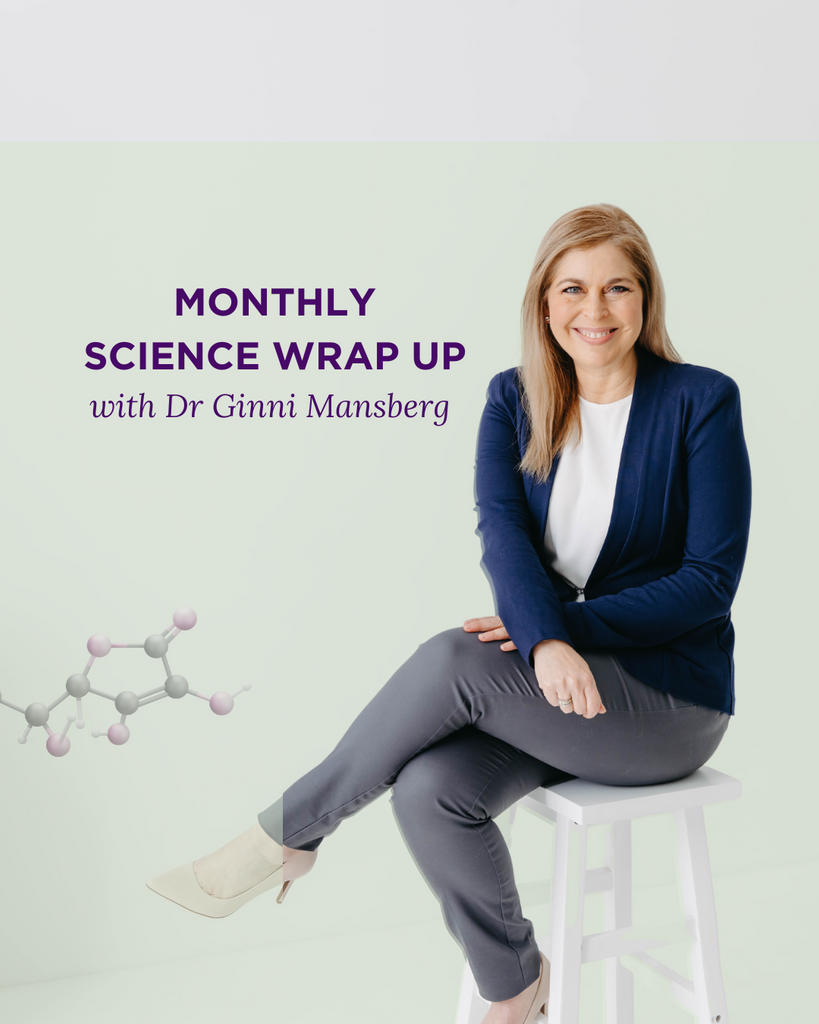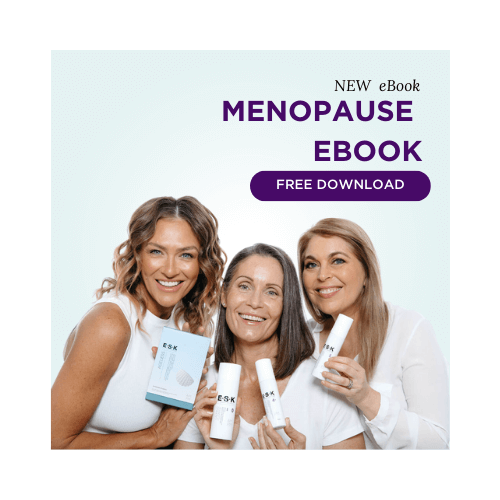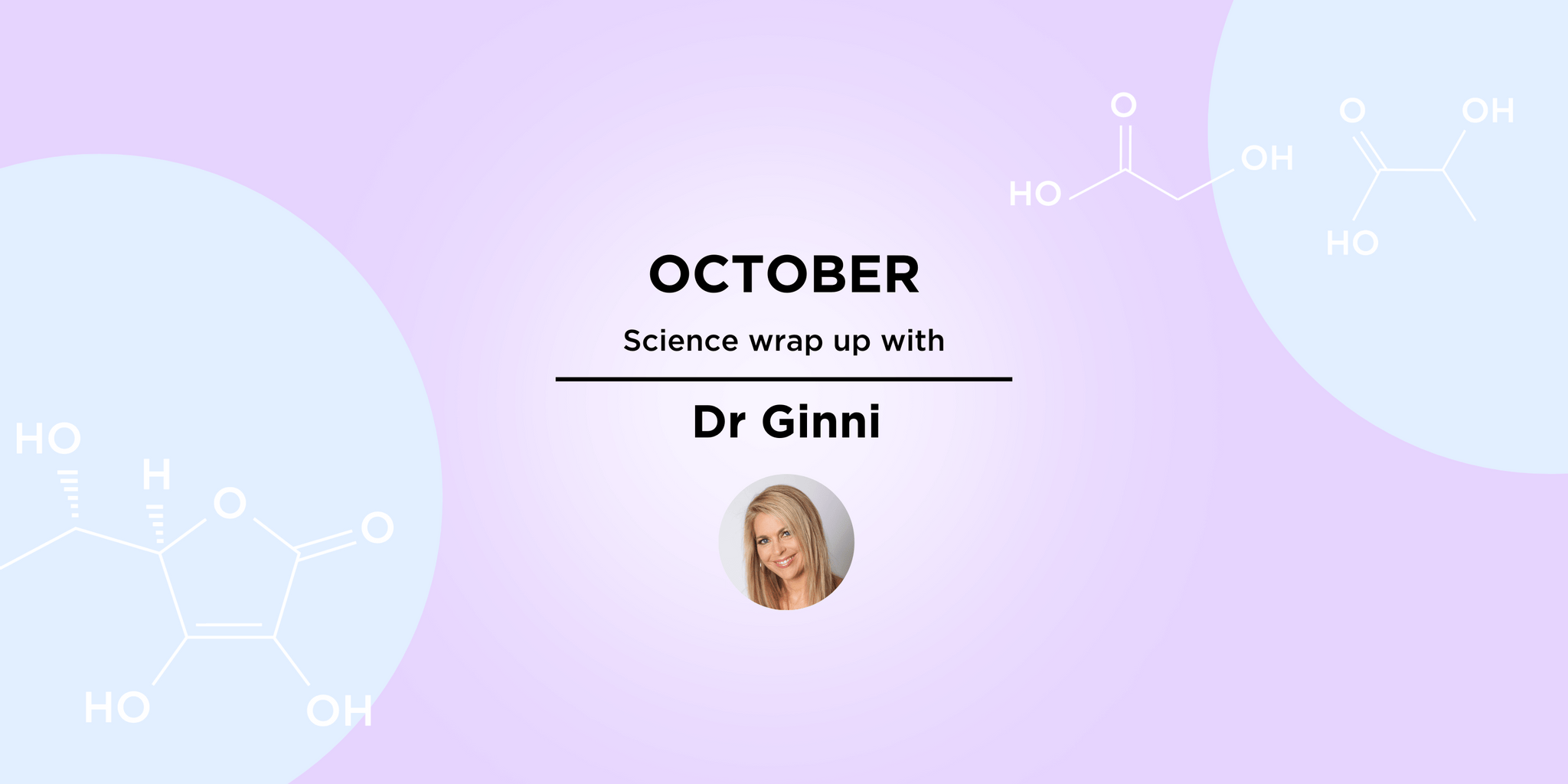
Science Hub
October Science Wrap 2023
31 October 2023
Dr Ginni Mansberg
Hello fellow skintellectuals!
Thanks to all of you who came out to our Complexion Correction launch. It was an absolute cracker! Complexion Correction is another ESK dissolving microneedle product. This time targeting pigmentation patches. They’re single use because as you apply them, the hyaluronic microneedles (they don’t hurt they just prickle) dissolve inside the skin releasing a payload of anti-hyperpigmentation actives into the skin itself. The hero is 4-n-butylresorcinol, the most powerful inhibitor of tyrosinase. Hyperpigmentation takes longer to combat than dry skin or fine lines. So patience is required. But the studies and the early feedback from our trial run customers has been incredible. Let us know what you think.
Now, let’s check out the latest studies!!
Complexion Correction Patches are designed to support the appearance of a more even-looking skin tone, including areas with visible dark spots or pigmentation. Each patch contains 2,000 tiny dissolving hyaluronic acid microneedles infused with 4-n-Butylresorcinol, Retinal, Niacinamide, Green Tea Extract, Resveratrol, and Ferulic Acid. These microneedles gently deliver ingredients to where they work best helping with the appearance of a smoother, refreshed, and more uniform skin tone over time.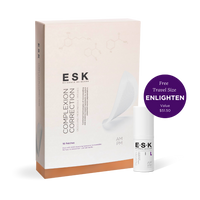
Complexion Correction: Microneedle Patches
Featuring:
- Painless 0.3mm dissolving microneedles for targeted application
- Ingredients to support a more even-looking skin tone
- Gentle, easy-to-use patches for home application
- Not suitable for use while pregnant or trying to conceive
Is your laptop giving you wrinkles?
In case you missed it, there’s a new form of radiation lurking in the environment to cause premature aging and pigmentation. Blue light is sent forth from your screens and a new Chinese study confirms that it reduces collagen production and increases collagen breakdown. The authors point out that emerging research suggests that blue light induces skin inflammation, skin barrier damage, and skin pigmentation. What we don’t know is how much blue light causes harm. We also don’t know exactly how to avoid it. Limit time in front of screens is the current thinking. Another option is physical sunscreens that seem to provide blue light protection by reflecting not only UV radiation but also blue light away from the skin, something chemical sunscreens don’t do. A good diet full of antioxidants from things like fruit and vegetables help, too. And while it’s early days, it seems that antioxidants like vitamin C in your skincare may help too.
C Forte Morning Serum is packed with 16% L-ascorbic acid, the purest form of Vitamin C, combined with vitamin E and ferulic acid for maximum results. Vitamin C (Ascorbic Acid) is an anti-oxidant helping neutralise free radicals (associated with exposure to the sun). The result? A brighter, firmer, plumper looking skin with fewer fine lines apparent and a more even skin tone. Formulated at the ideal pH (2.5-3.5) and housed in airless, opaque packaging, C Forte ensures stability and effectiveness, delivering radiant skin with every use.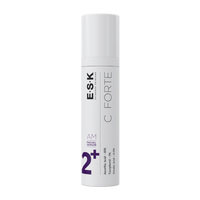
C Forte
Featuring;
- Evidence based ingredients and formulations for superior efficacy.
- Potent skin brightening ingredients
- A plumper, more hydrated and even toned skin.
Note: C Forte can exacerbate acne and may be too strong for irritable skin.
Skin and Vitamin D have a special relationship
An Italian review of multiple studies was just published in the journal, Frontiers in Endocrinology. It makes the case that keeping healthy vitamin D levels is a win for your skin. Well, for a start Vitamin D is made in the skin (when exposed to the sun’s UV (B) rays). It also has an anti-inflammatory role inside the skin and also has anti-aging effects. It has been found to stimulate collagen synthesis inside the skin which then improves skin thickness and strength. It also helps with wound healing and helps prevent damage caused by the sun’s UV rays. Studies in rats and mice have shown that vitamin D deficiency, both mild and severe, may speed up aging. Ironically, same goes for high levels of vitamin D. But there seems to be a U-shaped curve, with “normal” vitamin D levels in the blood being essential for avoiding premature aging. Lots of my patients have very low vitamin D levels. It is a simple blood test through your GP and while the evidence for their effectiveness is still emerging, supplements are cheap and available through supermarkets and pharmacies without a prescription. Just don’t go overboard, too much Vitamin D can occasionally be associated with some nasty side effects.
Mozzie season hot tips!
If you are a mozzie magnet, this study is for you. Published in the journal, Acta Dermato Venerelogica, this German study looked at a whopping 12000 insect bites looking at what gives the greatest relief from the itch. The answer might surprise you. It was heat! Effective against mosquitoes, horseflies, bees and wasps, it had its best effects against mosquito bites. Heat saw any bite-induced itch reduce by 57% within the first minute and by 81% 5–10 min later. In the study, there was a specific device used to heat up the bite area but I don’t see why you wouldn’t get the same results applying a spoon that you’ve run under the hot tap. Try it out this summer and let us know!
